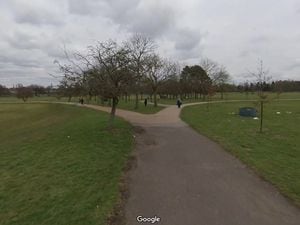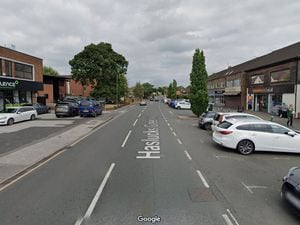One man’s mission to stop people falling foul of car thieves in Wolverhampton
A man from Wolverhampton is delivering thousands of letters across the city warning people in a bid to raise awareness over car theft.

Sarbjit Klair, from Bilston, has drawn up a four-page list of preventative measures to curb vehicles being stolen amid the coronavirus pandemic.
It comes as figures from ChooseMyCar – using police data between 2018 and last year – put Wolverhampton as the fourth worst in the UK for the crime.
Mr Klair, who is the founder of KLR Analytics, is an expert in Crypto-assets and Blockchain technology, said he wanted to act over the "persistent" issue.
Around 700 letters – which took two days to be drawn up – have been posted around the Bilston and Ettingshall area, with more than 1,000 set to be posted in the Penn area.
He said: "It's quite severe [the rate of car thefts] – we were only 10th or so before, so it's really quite surprising as well.
"And whilst the issues are increasing, there's not any preventative measures being stipulated to people to keep their vehicle safe.
"I wanted to do due diligence in regards to the whole thing, so I checked some web pages and put together the most concerning ways a car could be stolen.
"I put them into the paper and there's some unusual ways of stealing cars – like through a turbo decoder, which sounds weird but for the perpetrator it's quite easy."
Signals
Measures highlighted in the letter include fitting a tracking system to be vehicle or installing an immobiliser – which prevents a car being started by someone who doesn't have the proper keys.
It will help prevent turbo decoder theft – where offenders use the key to target manual door locks. It works like a modern car key – with it re-producing the format of the proper key, giving the criminal access to the vehicle.
Keyless car thefts – known as relay attacks – see criminals use a relay transmitter and an amplifier, tricking the car's systems into thinking the key is closer than it is.
It means the vehicle can be unlocked, started and driven away. But putting your keys in a faraday pouch will cancel out most radioactive signals being transmitted – with the pouch, placed in a metal container box, blocking out further signals.
Transponder key cloning sees a cloning device capture the unique coding on the key, which is replaced on the offender's blank key through another machine.
People have been urged to check the reputation of a garage or car wash before handing their keys over – with the offence taking under a minute to be completed.
Motorists who feel their car keys have been cloned can go to a reputable car garage to re-programme the keys and stop the criminal gaining access.
An on-board diagnostics (OBD) comprise can see the system – used by repair technicians to check the health and condition of the vehicle – used by criminals.
Precautions
People who have access to the device can gain all the information about the vehicle, including the key's unique code, which can then be cloned.
Using a steering-lock and inserting a GPS tracker can minimise an OBD attack – with the GPS tracker used to recover the vehicle by police.
Mr Klair, who who advises start-ups and organisations in law, economics, research and business solutions, said: "The measures aren't exhaustive. but are enough to maximise the safety of families and their possessions.
"The key here is proactivity – if people take the above precautions, it will bring together our communities and will ensure our families' safety and protection during these times of uncertainty."
Key code grabbing sees offenders wait in the supermarket – or public car parks – to target electronic key fobs, which will allow them to capture the key code.
But physical security, such as a steering-wheel lock will prevent this from happening – with people urged to remain vigilant.
And lastly a GPS jamming device can be used by thieves who can block the signal, preventing the owner from tracking it down.
But installing Very High Frequency (VHF) technology will allow the vehicle to be tracked – even if it's hid away.





